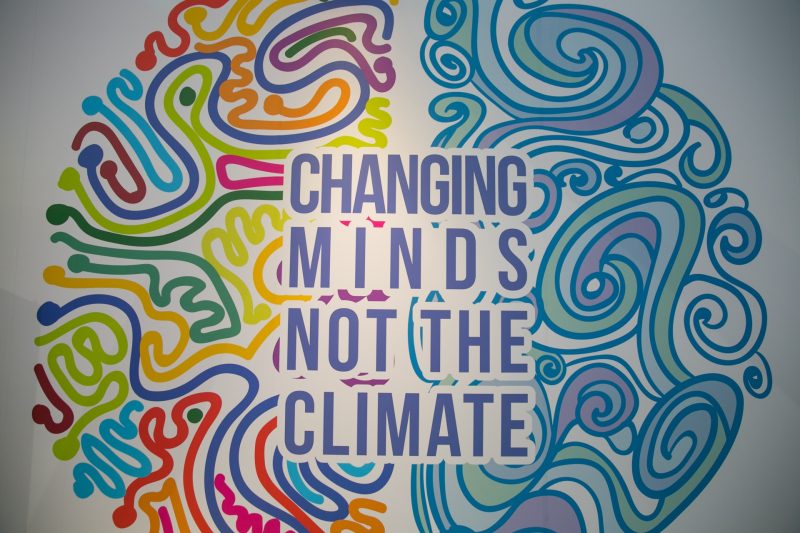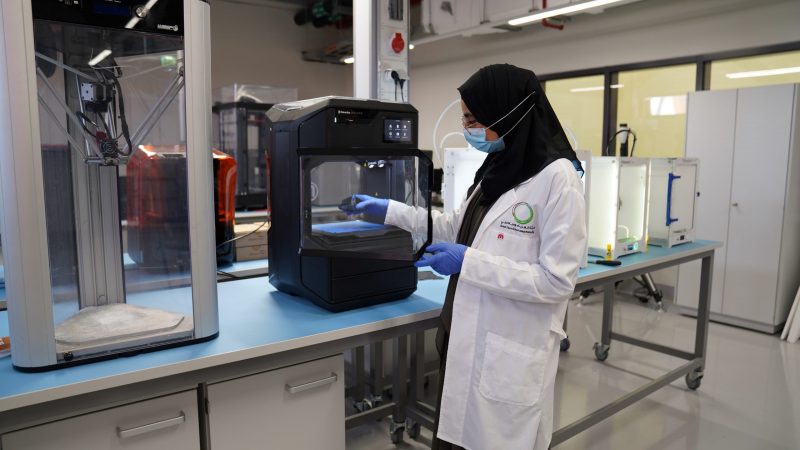Three Consumer Habits for Making a Meaningful Change in the Covid-19 World
Consumer Habits

May 7, 2020, 9:08 am
By Dr. Mari Luomi
We must seize this historic opportunity to fulfil our generational responsibility to create a better, cleaner and greener future. While governments and businesses also need to act, individual choices matter. There are three green, high-impact lifestyle changes that many of us have already embarked on without noticing. Going forward, we need to turn them into habits.
Habits for Us to Forge
Right now, our entire lives revolve around the Covid-19 crisis. Many of us fortunate to still have a job and be healthy are left with more spare time than ever before. We make plans for when life returns to normal. Most of us are still in denial but the inconvenient truth is that normal, as we know it, will no longer be attainable after the pandemic subsides.
In the absence of a vaccine or cure that is made widely available, we may be facing years of extended preventive measures like social distancing and temporary lockdowns. Over this time, we will form many new habits. We will adopt some of these because of changing external circumstances: we will travel less and pay more attention to hygiene and health, for example.
But many habits are ours to form. By being confined to our homes, we are already consuming and polluting much less than previously. While this has been a forced slow-down that has profoundly disrupted our daily lives, it also gives us an opportunity to step back. With consumer demand for many products and services radically down, there is no better time to proactively shape behaviours that help us collectively get to a climate-safe and resilient world—break bad, polluting habits and build new, greener and healthier ones.
We Have the Power
But does individual action matter? Yes, it does. The first step is to avoid falling into the trap of discrediting the power of individuals. Studies show that consumer demand is the main driver for sustainability initiatives in companies and in many markets demand for green products are growing multiple times faster than their conventional equivalents.
But not all consumer choices are equal. People can easily get distracted from the big picture by bamboo toothbrushes or paper straws. Even better informed consumers face a difficult choice between which environmental impacts to focus on: water security, marine plastics, climate change, species extinction, animal welfare—the list seems endless. But since climate change is by many measures the major challenge of the century, focusing on the carbon footprint of our choices is arguably a good starting point.
What Really Matters
Scientists who ranked individual lifestyle choices with the highest carbon footprint-reducing impact concluded that having fewer children is by far the most significant impactful action. Fortunately, however, for those of us already habiting this planet there are a number of things we can do.
But first, how much do we emit here in the UAE? Based on government data, an average UAE resident’s carbon footprint calculated on a per capita basis for 2014 (most recent year for official data) was 18.5 tonnes of carbon dioxide equivalent (tCO2e) per year—almost three times the global average, 6.7 tCO2e. Per capita figures naturally only offer broad insights: they for example include the emissions from oil and gas refining (19% of the UAE’s total emissions) but omit things like the manufacturing footprint of imported goods and international aviation emissions. They also ignore the fact that a construction worker’s footprint is minuscule compared to someone who owns a villa and two SUVs.
Per capita emissions, however, are the best proxy we have at the moment. And the end goal is clear: in order to keep global warming below 1.5°C, global per capita emissions should converge at significantly lower levels—2.5 tCO2e by 2030, according to one study. This would mean an 86% decrease in our carbon footprints over the next decade if the global budget were divided equally among all humans.
Much of this change will need to come from how energy is generated and how products and services are produced. But there are three major ways in which UAE consumers can have an impact, while generating considerable health and economic co-benefits:
- What we eat:
Movement restrictions have forced us to eat differently, and many are now more conscious of their food choices—both for hygiene and health reasons. The good news is that diets can have a significant positive impact on both our health and carbon footprints. A plant-based diet in a developed country on average saves 0.8 tCO2e each year, and eating less meat up to half of this. One kilogram of beef results in 60 kg of CO2e emissions across the supply chain. With an estimated beef consumption of 10 kg per capita, the UAE’s per capita emissions from beef alone are somewhere around 0.6 tCO2e.
Transportation makes up for a small share of the carbon footprint of most foods, which means that even though the UAE imports 90% of its food, what we eat is more important from an emissions perspective than where food comes from – even if supporting local sustainable agriculture will benefit the UAE economy more.
Food waste is another major source of emissions: with a food loss rate of 197 kg per person, it costs the UAE 13 billion Dirhams every year. In simple terms, eating less meat or going plant-based, and avoiding waste are a great way to get started.
- How we move locally:
Living car-free in an average industrialised country avoids 2.8 tCO2e per year—equivalent to 15% of the average UAE per capita footprint. Electric and fuel-efficient cars can achieve up to half of this amount of savings, but low-density housing in turn leads to longer commutes and higher emissions. Fortunately, increased frequency of remote work will mean less commutes, but this will not be enough. In the absence of broad public transport networks, living close to one’s workplace and services and buying an electric car when the time comes to switch are the next best options in the UAE.
Having fewer internal combustion engine vehicles on the roads also helps the UAE maintain its air pollutants at healthy levels. According to the government, road transport generates 78% of carbon monoxide, 38% of nitrogen oxide and 32% of non-methane volatile organic compound emissions in the UAE. In short: avoiding long commutes, carpooling, and switching to hybrid or electric have a big impact.
- Why we travel and where:
By far the most effective way of cutting carbon footprints is minimising air travel. An extremely emissions-intensive activity, a single transatlantic roundtrip emits 1.6 tonnes of CO2e—or more than half of what an average individual in the developed world emits by driving a car for an entire year.
While the coronavirus crisis will hit the aviation industry hard, on the other side of the coin is a world in which individuals are learning to appreciate the time saved and emissions growth in this sector is limited. For academics at least, reduced air travel has been demonstrated to have no impact on their productivity.
With less air travel, the UAE’s tourism industry is also struggling. Local tourism is not only more sustainable but supporting it can also help maintain jobs in the difficult years ahead. In addition to the well-tested UAE staycations, future holidays could include EV road trips, desert getaways and mountain camping. In other words, the really big reductions are in reducing business travel and vacationing locally.
Not the Bins or the Bulbs (Alone)
The majority of us wish to see a difference: a recent poll of 14 major economies found that 65% of people want climate change to be prioritised in the post-Covid-19 economic recovery. Schools, governments and media, however, have not done the best job communicating about the most effective ways for individuals to cut their footprints. Contrary to what one might think, comprehensive recycling is four time less effective from an emissions point of view than plant-based diets. Switching light bulbs is eight times less effective.
There are many actions that the UAE government and companies will need to lead on, including providing clean sources of energy, supporting energy efficiency measures, mandating more stringent green building codes, and expanding public transport and sustainable mobility services.
But individuals can have a significant impact too, if empowered with knowledge and motivation. We are already more conscious of the food we eat. We have seen the positive impacts of less fossil fuel-powered traffic on air quality. And local holidays can be a win-win both for the economy and the environment.
Psychologists suggest that habits take an average of two months to form. So let’s start today!
Image: Article illustration by IISD/ENB, Photos taken on Tuesday, 13 November 2017 (Day #7)










